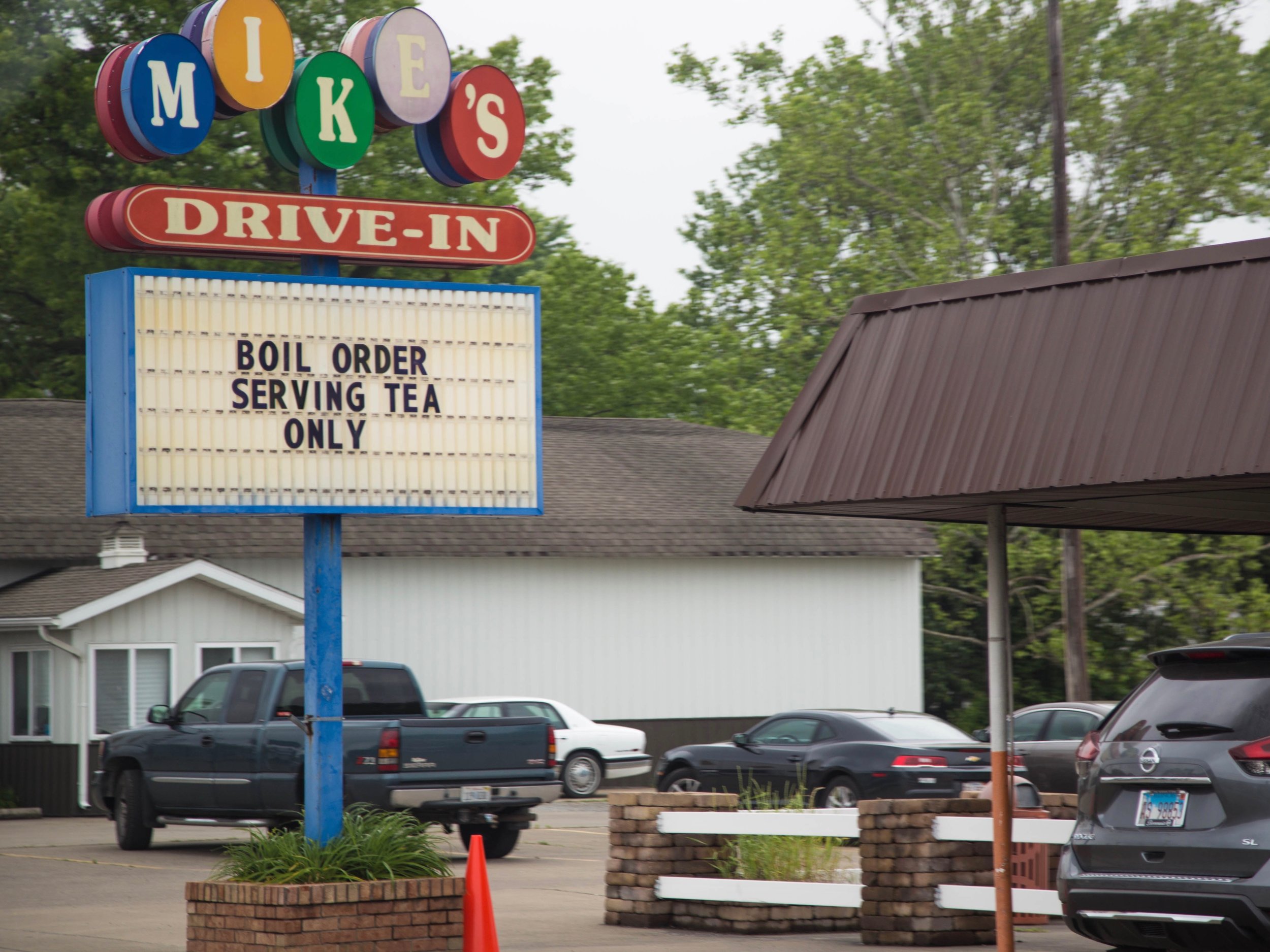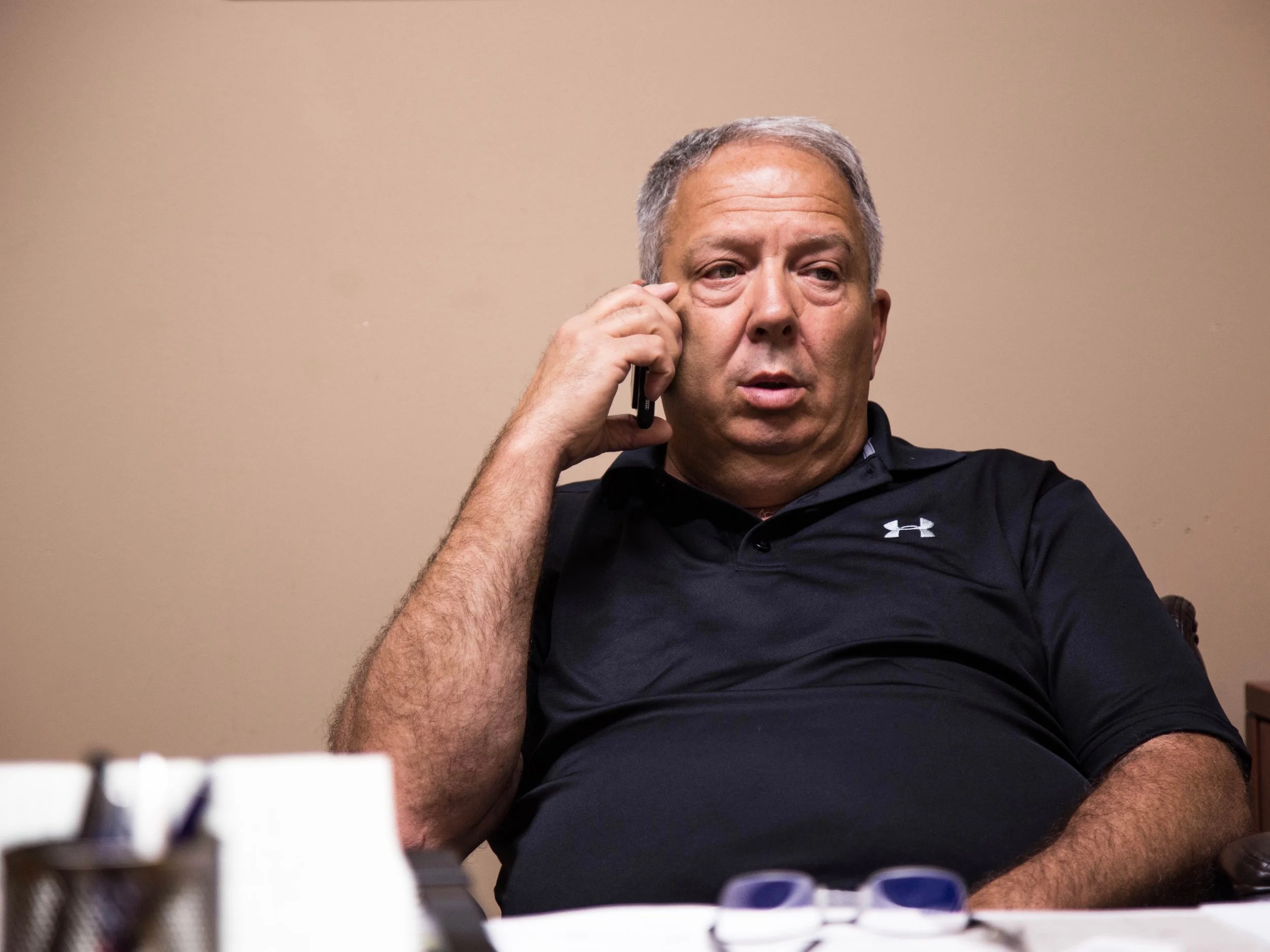'He thought it was an earthquake'
Water slowly restored to 160,000 after pipe bursts at Rend Lake pumping station
By Ted Cox
Water is flowing again to about 160,000 people across southern Illinois after a pipe burst at a Rend Lake pumping plant that serves 60 communities.
Schools and businesses reliant on water, such as restaurants, were closed after a 36-inch pipe burst at the Rend Lake Conservancy District on Wednesday evening. Water was cut off, city supplies were limited, and a boil order was issued for water coming out of all taps across the Inter-City Water System, including all or parts of seven counties. That might extend into Wednesday in Marion at the south end.
“Our restaurants, our hotels, our motels, any facility that used water for their business, they closed. They’re still closed,” said Marion Mayor Anthony Rinella on Friday morning. He was hoping to allow them to reopen that afternoon, but the boil order will hold.
The water district won’t make initial tests until the system has stabilized Saturday, with results expected Sunday. Each community will have to test its water after that before local boil orders are lifted. “So best-case scenario is Monday afternoon,” said Larry Sanders, assistant general manager of the district.
Officials also warned that people might see dirt and sediment in the water until the system stabilizes.
Sanders said a man in the main control booth when the pipe burst Wednesday night “thought it was an earthquake.”
"Every gallon of our water goes past that point."
Rend Lake Conservancy Assistant General Manager Larry Sanders (One Illinois/Zachary Sigelko)
Water burst out of a 30-inch hole in the bottom of the pipe, gushed down, and shot a drain cover so high it hit the 25-foot ceiling.
“It was very dramatic,” said Sanders, whose office is in a building across the street. “I arrived about 15 minutes later and there was water pouring out of the place. It was flooded, completely flooded.”
Workers had to shut the pipe at that end, and a mile up the road to keep water from flowing back.
“Every gallon of our water goes past that point,” Sanders said.
According to Sanders, the pipe simply “rusted and burst.” He added, “The plant is about 50 years old, so there’s no reason to believe this isn’t a 50-year-old piece of pipe.”
An attempt to weld a patch on the pipe Wednesday night failed. “We turned the water on, it just spurted in all directions,” Sanders said. “So that pipe had to be taken out.”
The replacement was completed at 4 a.m. Friday, he said, but the system has to be refilled gradually to prevent any other failures at vulnerable points. Sanders said it usually pumps 20 million gallons a day.
“We actually are kind of slow-pedaling it,” he added. “We’re not going great guns, but we’re putting a lot of water out there.”
According to Rinella, reported flow on Friday was 11,000 gallons a minute, or about 15 million a day.
“We can’t thank our people enough. They bit the bullet,” Rinella said. He lauded the businesses that had to close. “That’s tough to do,” he added. “You’re taking business away from people. You’re taking livelihoods away from people. That’s a tough decision to make. But it’s a decision I thought was right.
“The staff thought it was right. And we kept water to our critical-needs facilities — our hospital, our nursing home, our assisted living. And, in the end, we took care of people who can’t take care of themselves. That’s very important to us.”
Rinella recorded a message to local residents shortly before noon Friday.
In Johnston City, just to the north, police officer J.D. Barter said most people were minimally put out. “We’re delivering water to the elderly who can’t get it,” he said, “and young mothers who might not have water for formula and other things.”
“It’s just a big inconvenience,” said Johnston City resident Jim Shadowens. “People have got places to get water. You’ve got to pay for it, but you have something to a sponge bath at least like in the old days for us old guys.”
The timing could have been better, however. “Tonight’s Prom Night,” he added, at Johnston City High School. “All those girls, the beauty shops are closed. Nobody’s getting their hair done. You know how that feels.
“They’re going to be doing it outside, but they might be getting rained on there too.”
Water, water, everywhere, and not a drop to drink without boiling — or to wash your hair.
Mayor Rinella, however, wasn’t quite as tolerant when it came to the response from the Illinois Emergency Management Agency. Gov. Bruce Rauner issued a statement Thursday saying: “While there currently have been no requests for state assistance, state agencies are actively preparing to provide support needed to ensure the public health and safety of the many communities served by the district.”
“The state’s response? What have they done?” Rinella said. “You’d think (when) 160,000 people get out of water, why do you have to go through protocols and IEMA to get a response?
“We got a response from them (Thursday) and they denied us water. So they can say what they want to. I did get a call this morning from the director of IEMA. The Salvation Army is sending down two semi-tractor trailers filled with water. … But the State of Illinois didn’t. They secured a private agency to do it.
“I will tell you, and I’m not afraid to tell you, that I had conversations with J.B. Pritzker twice (Thursday) and once with his staff member that night — merely calling and checking what was going on and how we were doing down here. I’m nothing special, but I don’t know that the governor reached out to anybody.”
A Rauner staffer did call Rinella Friday morning. “Her and I kind of got sideways with each other,” Rinella said. “i told her, don’t worry about us. We’ve been through many, many emergencies here in Marion — two tornadoes, numerous floods. We know how to take care of ourselves and will take care of ourselves now. This is just an inconvenience. Compared to those, this is just an inconvenience.”
One he said could have been prevented — for Marion and surrounding communities — if the Sugar Creek Lake project hadn’t been halted by federal judges. “They made a decision that it was more important to save the Indiana crawfish and the least brook lamprey eel than to provide water. Now you see what’s happening today.”
Rauner showed up in Marion later Friday, and toured the area north to the Rend Lake facility. He issued a disaster proclamation for nine counties: Franklin, Hamilton, Jackson, Jefferson, Perry, Saline, Washington, White, and Williamson.
“We’re encouraged that water is now flowing through the system,” Rauner said. “We’ve arranged for several truckloads of water to be delivered to the area today. We will continue to support the local officials in whatever way we can until everyone has good, safe water flowing again.”
Rinella said he’d like to see more invested in infrastructure. “It’s everything — especially water,” he said. “I understand it takes money. But if we can build a wall, we can put water lines in the ground.”
"if we can build a wall, we can put water lines in the ground."
Marion Mayor Anthony Rinella (One Illinois/Zachary Sigelko)
According to Sanders, the district is a municipal district, but gets sufficient support from local, state and federal agencies. A plan to add a redundant section in that area of the pipes is slated to break ground next month. But previous pipe replacement came within three feet of the failed pipe section before that project was completed. “Too bad we weren’t a little sooner and a little bit bigger,” he said, “because this was not part of that project.”
Some 160,000 people were affected.
“It doesn’t sound like much to Chicago or St. Louis or Springfield,” Sanders said, “but we’re over a pretty large range.”
The basic range extended north to Mount Vernon, east to McLeansboro, west to Du Quoin, and south to Marion.
The Southern put out a list of the affected communities.
Sanders was pleased to have the pipe replacement fixed as he awaited the arrival of the governor Friday afternoon. He said he’d briefly slept the last two nights on his office couch, and he had the nearby pillow to prove it.
“The adrenaline!” Sanders said. “I’ve got to get home before I collapse, because the adrenaline is still flowing.”



